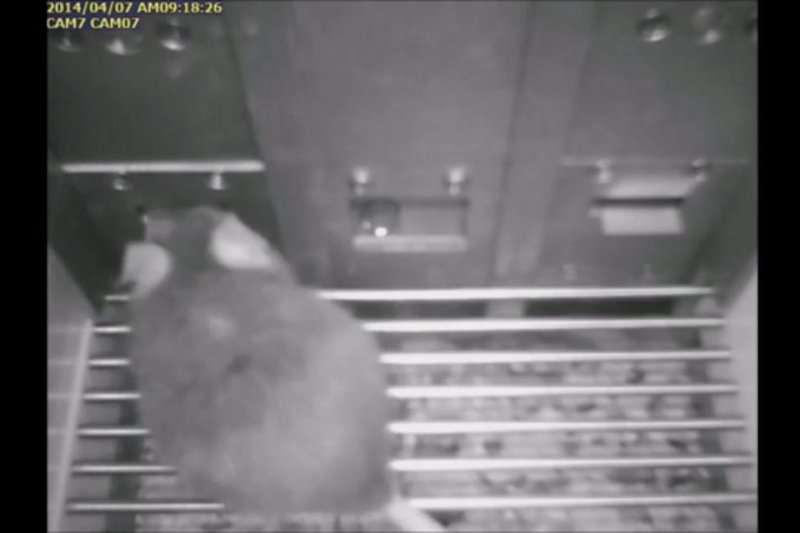In goal-oriented learning experiments, older mice were unable to adapt to shifting circumstances -- like the mechanisms of two levers being reversed. Photo by Cell Press
BRISBANE, Australia, April 20 (UPI) -- You can't teach an old dog new tricks. Turns out, you can't teach an old mouse new tricks, either.
It's a cliche, but it's at least partially true -- as people age, adaptation comes less naturally. Young people tend to adopt new technologies more fluidly, while older people stick with what they know.
Now, science explains why. It's mostly a matter of brain circuitry, researchers say, and a new study involving lab mice is proof.
As part of the study, researchers trained old and young mice to press levers for two different types of food, one grain-based and one sweet-tasting. Next, the mice were trapped in a container for several hours and give only grain-based food.
When the mice were freed and given access to the levers, they opted exclusively for the sweetened food -- having grown tired of the grain.
To test their ability to adapt, researchers switched the lever mechanisms so that the lever that used to deliver sweet food now delivered grain and vice versa. Young mice were able to quickly adapt and begin exclusively eating sweetened food after being relegated to grain.
Older mice failed to make the simple adjustment.
Researchers were able to pinpoint the neural decline in the aging mice. Aging mice showed diminished activity along a neural pathway called the parafascicular-to-cholinergic interneuron pathway, or PF-to-CIN -- a pathway linked with goal-directed learning.
When scientists purposely impaired the pathway in younger mice, they showed the same inability to adapt as their aged peers.
Researchers say their findings suggest motivational deficits likely interfere with older people's ability to adjust during goal-oriented learning. In other words, the weakening of an aging brain's neurological reward system diminishes its ability to learn new tricks.
The scientists published their study results in the journal Neuron.
"We think that it is of utmost importance that motivational decline is considered as a condition in its own right, so that strategies can be efficiently implemented early on to prevent motivational problems in the aged," said study author Jesus Bertran-Gonzalez, a professor or neurology at the University of Queensland.
"In addition to extending the quality of life in the elderly, efficient restoration of motivational behaviors could in some cases reduce the risk of further cognitive decline and progression to dementia."















